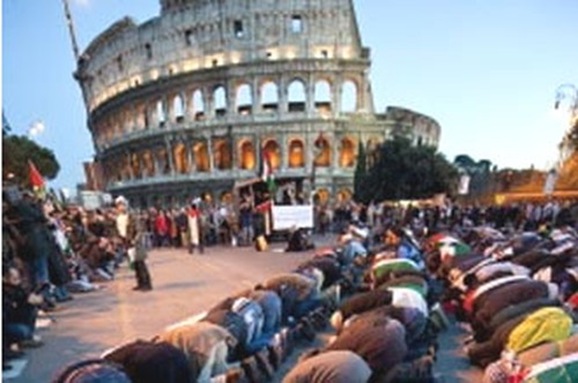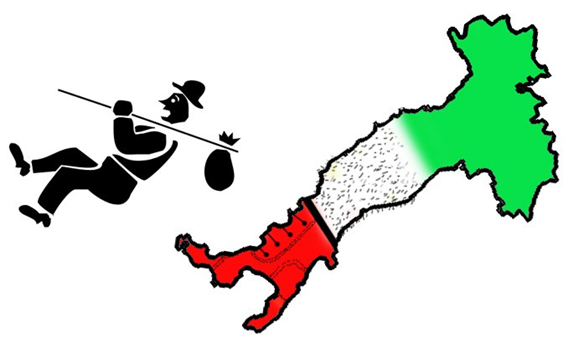ANSAmed Info
February 13, 2014

At least 35% of Italian prison inmates come from Muslim-majority countries, and one in four prisons has a prayer area set aside for them, a government report obtained by ANSAmed showed Monday.
The joint report by Italy’s Justice ministry and department of corrections is titled ‘Mosques in Penal Institutions’ and is to be released Tuesday in Rome at a Niccolò Cusano University conference on ‘Muslims in Italy’. Of the 64,760 detainees as of September 30 (that number decreased to 62,500 people behind bars as of the end of 2013) approximately 23,000 were foreign, and 13,500 of these came from Muslim-majority countries, mostly Morocco and Tunisia.
Most were doing time for drug dealing, theft, falsifying documents and resisting arrest, the report showed. Of these, just under 9,000 were observant Muslims, including 181 imams or spiritual leaders, and 53 out of 202 prisons surveyed had mosques set up for them. In prisons lacking adequate space, people pray in their cells or in the yard.

Italy’s chronically overcrowded and underfunded prisons are likely places for religious radicalism to proliferate, according to the report. ”Extremists can create networks and recruit and radicalize new members, canceling out attempts at education and rehabilitation”, it said. While those accused of terrorism are ”rigorously separated from the rest of the inmate population” to reduce the risk of proselytism, ”the common population might also include religious fundamentalists” who would have access to ”fragile, easily influenced” individuals.
The report calls on prison authorities to bring in ”moderate imams”, ”cultural mediators” and ”charismatic individuals” able to work on ”de-radicalizing” the most extremist inmates. Extremists often quote religious texts but tend to have only superficial knowledge of them: bringing in educated religious figures, ”especially if from the same tribal, ethnic and linguistic groups, could be effective in refuting extremist views, pointing to more moderate parts of religious texts”. Many inmates find religion behind bars, according to report curator Luca Bontempo. ”Inmates find solace in religion, which allows them to recreate their communities of origin”, he explained.
There are an estimated 10 new converts a year within the prison system, he added. These are people with no strong religious beliefs to begin with, but who might find protection and a new social identity in Islam behind bars.
Italy’s prisons currently dispose of a ”modest” team providing spiritual guidance for inmates made up of nine imams, 15 cultural mediators and approximately 60 volunteers. Prison authorities are working on a joint project with the Union of Islamic Communities in Italy (UCOII) to license more imams to work with inmates, Bontempo added. (ANSAmed).
